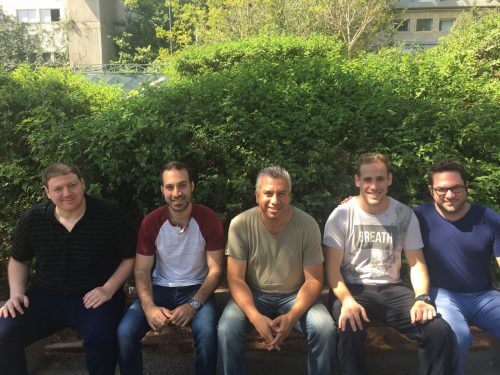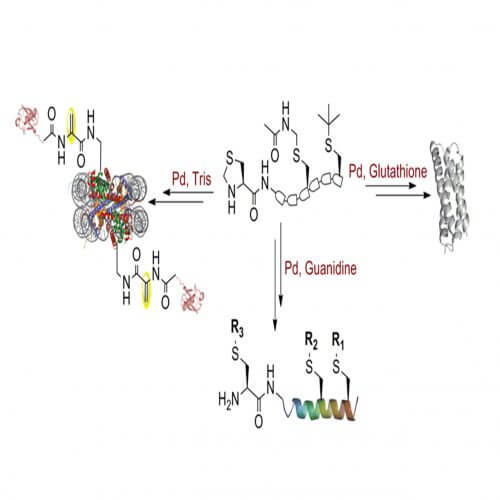Researchers at the Shulich Faculty of Chemistry at the Technion have developed innovative synthesis methods that expand the chemical toolbox and enable the efficient preparation of new proteins. The discovery is expected to influence scientific and medical research

The journal Nature Communications reports on new methods for the synthesis (creation) of proteins, developed at the Technion. The research was led by Prof. Ashraf Barik from the Shulich Faculty of Chemistry and was attended by Muhammad Jabara, Shai Leps, Dr. Guy Kaminetzky and Guy Man from his research team and his colleague Prof. Cynthia Wolberger from the Johns Hopkins University School of Medicine.
Proteins are essential components in the living cell, from which organelles in the cell, muscles and more are built. Artificial creation of proteins is a means of promoting biochemical, structural and functional studies and the development of new drugs. Therefore, the success of the research group from the Technion and Johns Hopkins may have a dramatic effect on these directions.
The international group was able to create complex protein clusters through precise tuning of chemical processes. This is an expansion of the chemical toolbox for the synthesis of proteins and the opening of a new channel for the development of small molecule chemistry based on organometallic complexes. The method was demonstrated in the synthesis of copper storage protein (CSP1) and in the reaction of ubiquitin proteins to form a strong (covalent) enzyme-nucleosome complex.

Prof. Barik completed his master's and master's degrees at the Technion. After an impressive career at Ben Gurion University, he joined the Technion faculty at the initiative of Nobel laureate Professor-Researcher Aharon Chachanover. Prof. Brick has won many awards, including the Humboldt Prize (Germany), the Hirata Prize (Japan), the Tetrahedron Prize for Young Researchers, the Eli Horowitz Prize (Israel) and the Israel Chemical Society's Prize for Promising Young Scientists. He was recently elected a member of the Israeli Young Academy.
The current research was supported by the Binational American Israel Foundation (BSF).
More of the topic in Hayadan:

One response
Waiting to get to know the complex protein after I made friends with the complete protein. The main thing is that it should not be meaty.
Maintained by the researchers